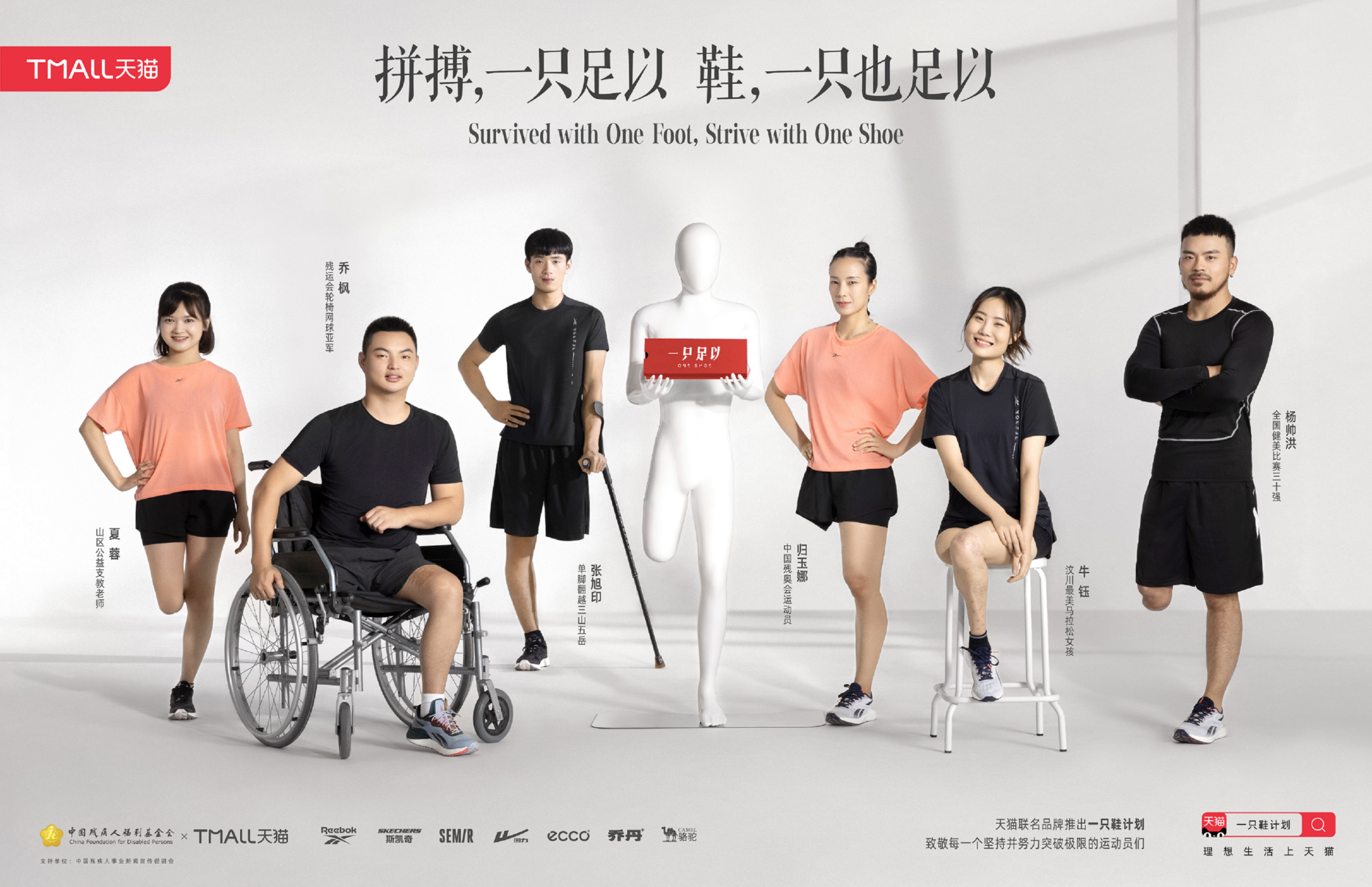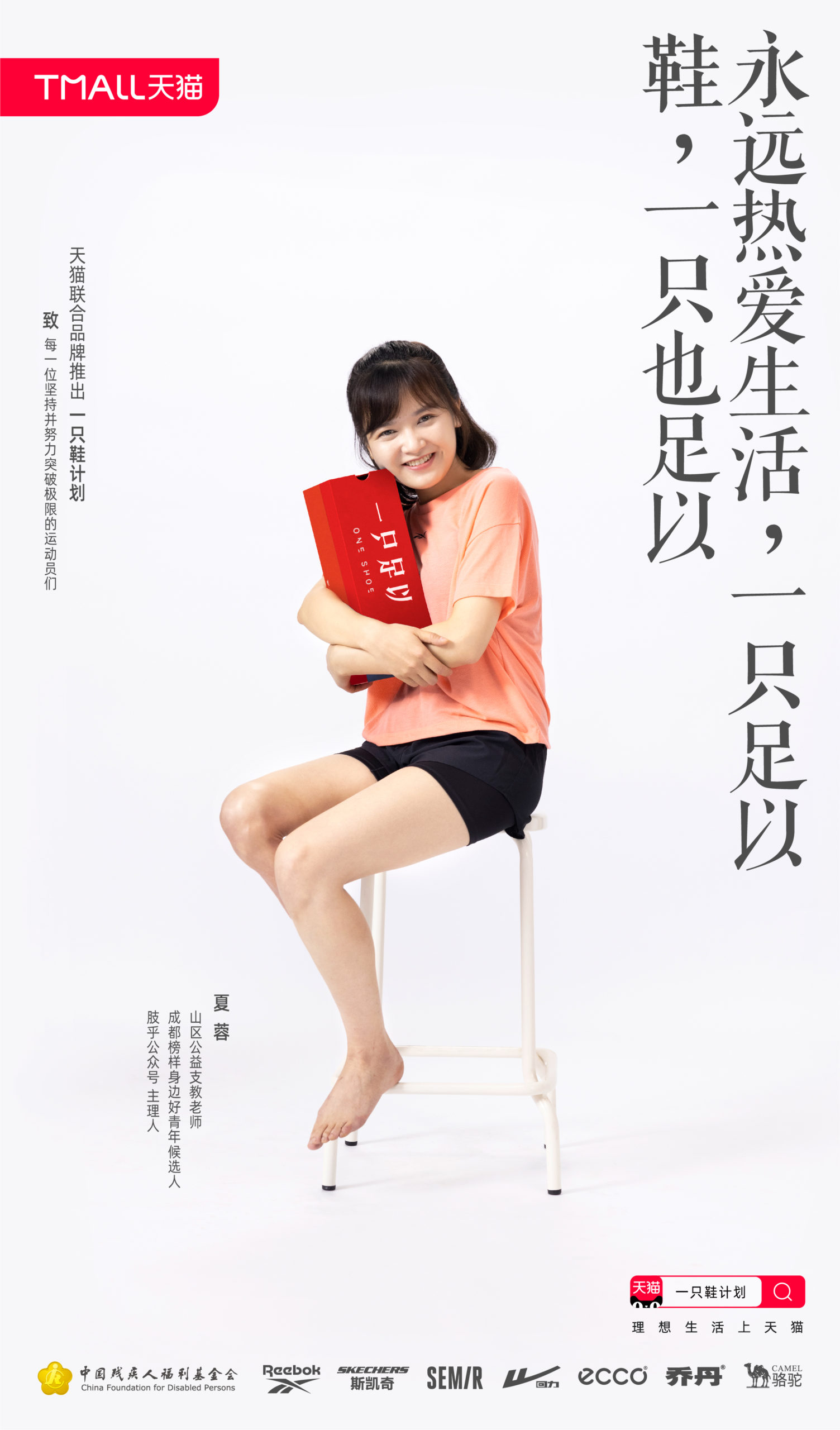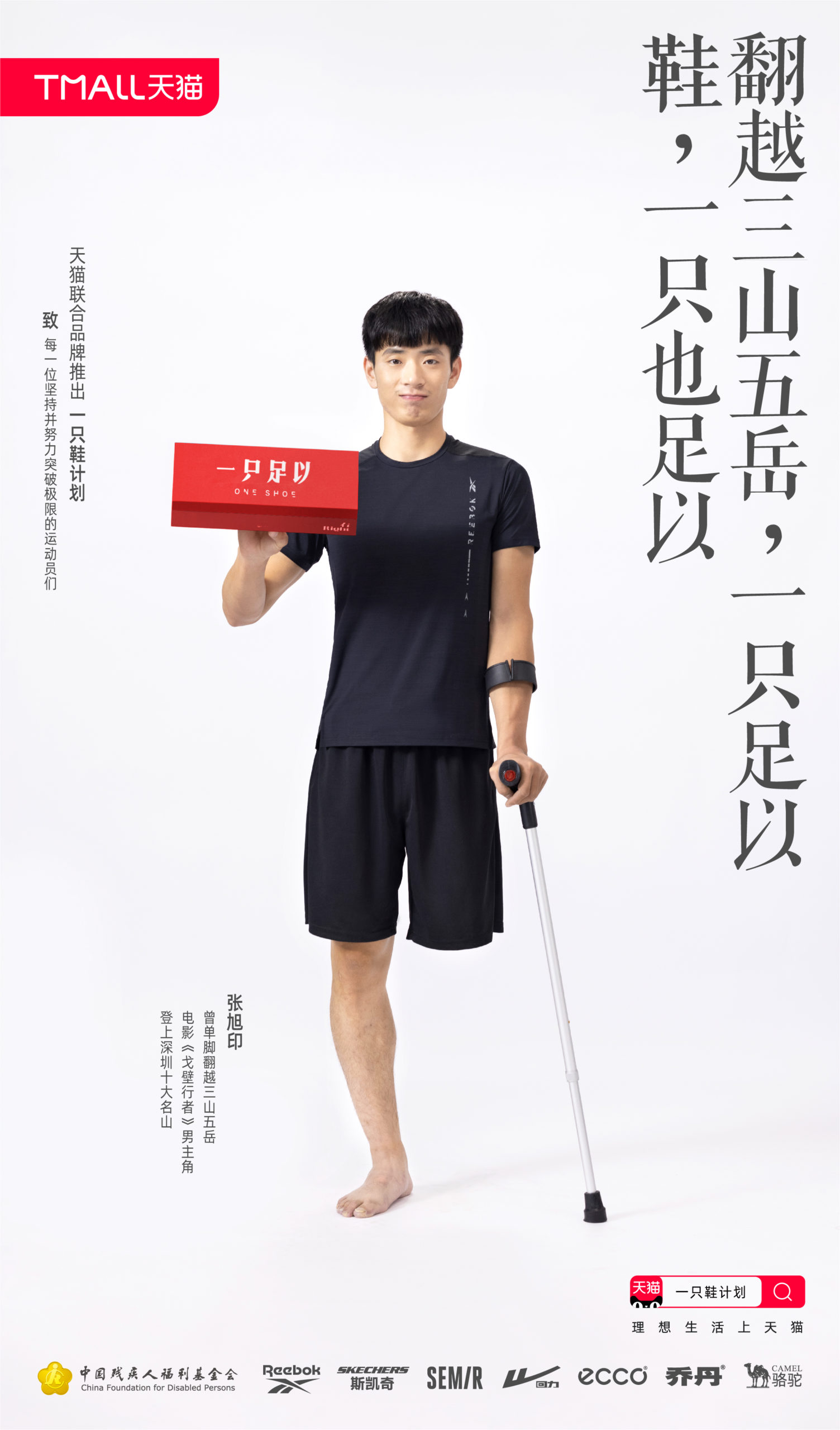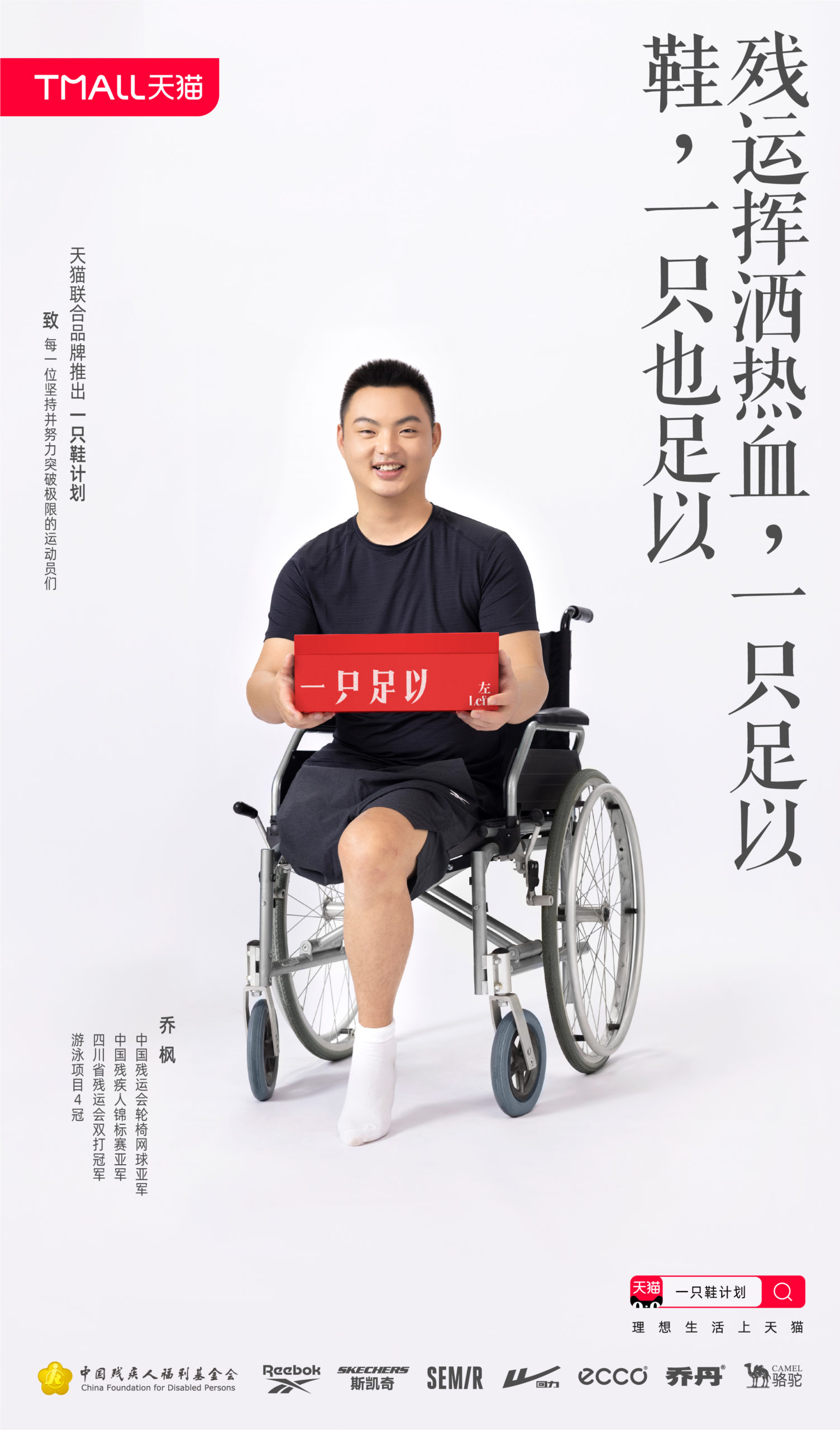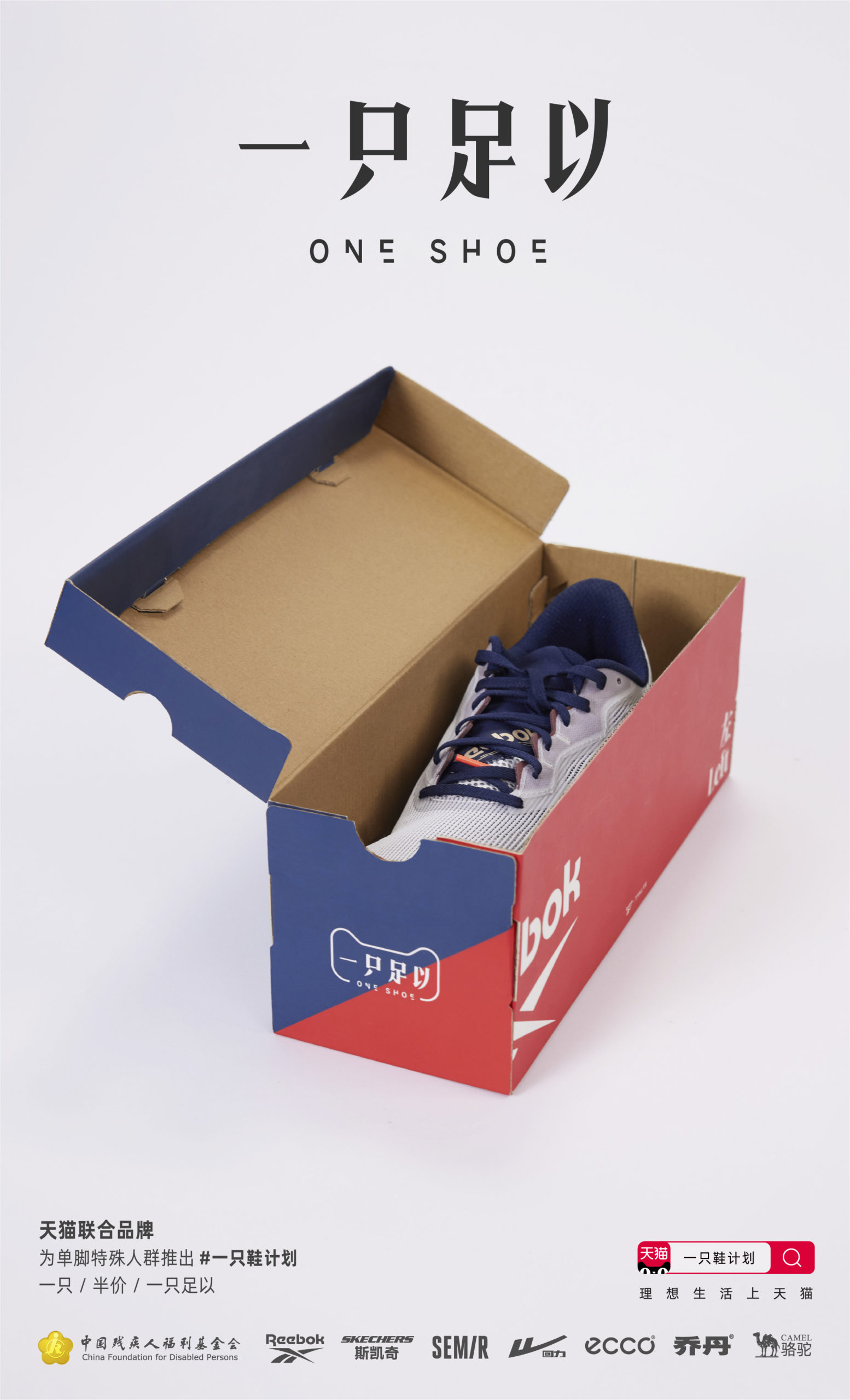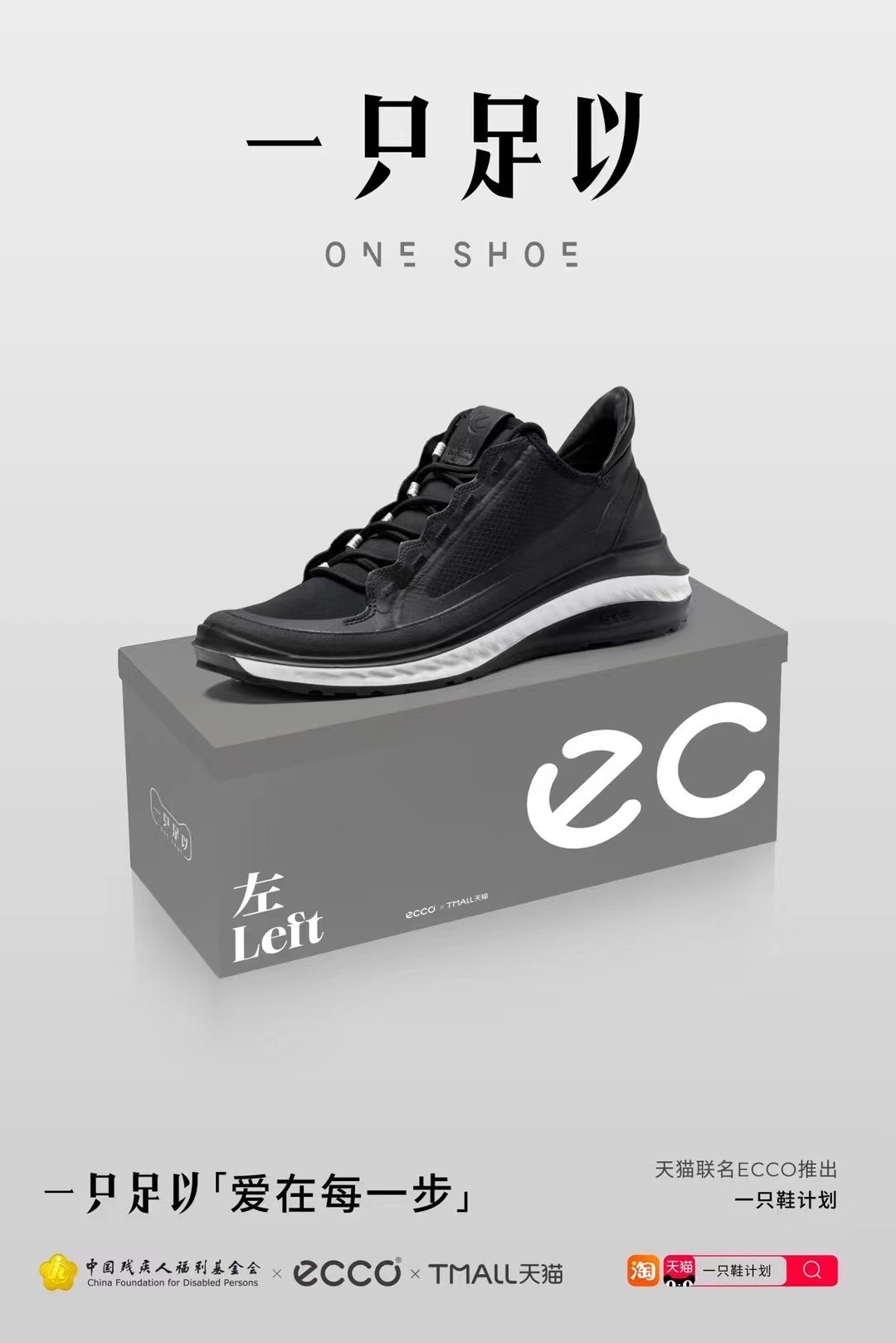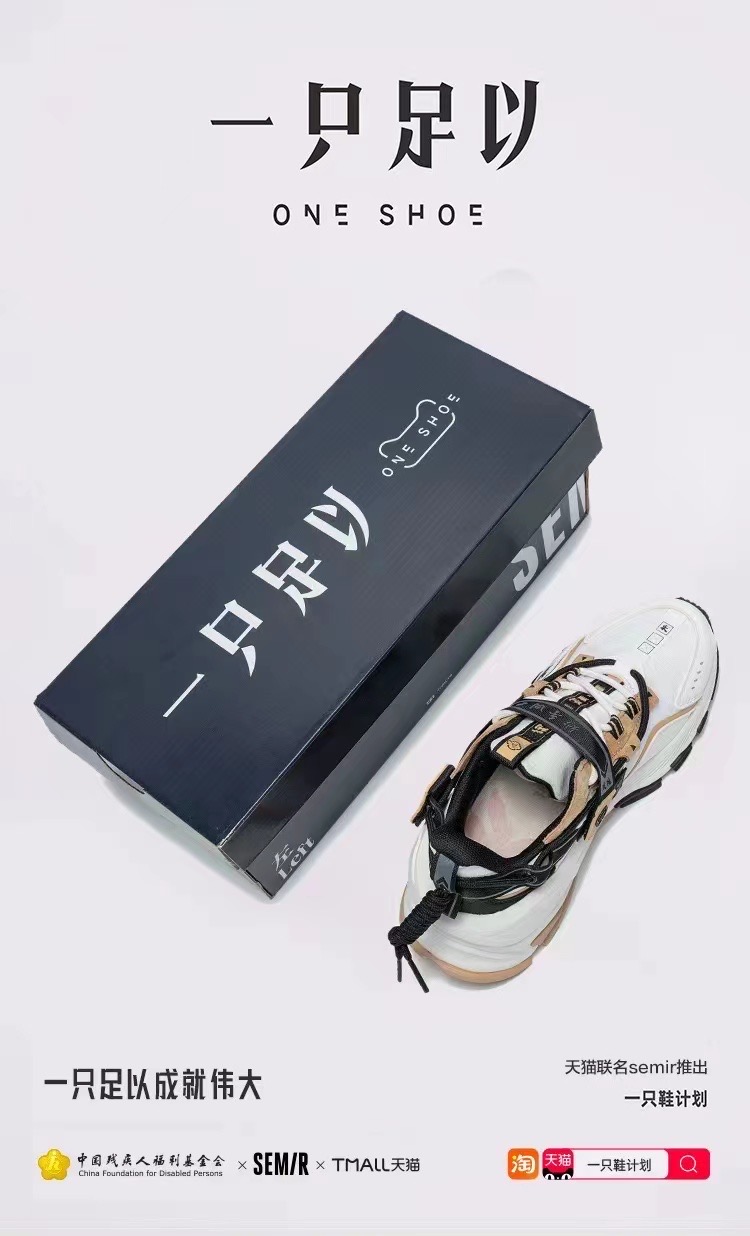Key takeaways:
- So far, little attention has been paid by brands to a special group of consumers – disabled people in China.
- Tmall’s One-shoe scheme, for the first time, responds directly to a simple, yet, long-overlooked demand from the disabled, by offering amputees living with one leg a single shoe.
- The well-received campaign shows not only “special needs” of people with disabilities are, essentially, not special, but also prompts similar adjustments introduced by brands for the country’s wider disabled community.
“What I’m going to do with the other shoe?”
For most of us, we might ask for a refund had we received only one shoe or at least demanded we have the other for the pair. But for some, every time receiving a pair of shoes could be a pinch in their hearts, namely those people living with one leg.
A two-minute narrative-free campaign video delivers a silent, yet, powerful message that people with one leg are as much capable as anyone else, if not more.
Rarely has the question that “What I’m going to do with the other shoe?” come across our minds, because we have taken a pair of shoes for granted like we do our accessibility and use of our legs. On the other side, this triviality alienates those amputees, as it reminds them of their physical defects compiling their differences to others.
Tmall’s solution with just one shoe
“Then why not just giving them the one shoe they actually need?” asked Jin Sihan, creative director for Tmall’s One-shoe scheme, also known as “One is Enough” campaign. This PR series was unveiled by the e-commerce platform two days after this year’s Singles’ Day Shopping Festival presales kicked off on 20 October.
The launch of the scheme also coincided with the opening of China’s 11th National Games for Persons with Disabilities and the 8th National Special Olympic Games. In collaboration with seven sportswear brands including Warrior, Skechers, Reebok, Jordan, Camel, Semir, and ECCO, all shoes under the scheme will be sold at half price and packaged with a shoebox half the normal width.
“As a platform bridging brands and consumers, while serving the disabled, we have to keep our business users in mind,” said the brand marketing manager at Tmall, “the solution has to be done with a minimum impact on their normal operations.”
Featuring the daily training routines of six single-leg individuals, from a Paralympic medallist and marathon runner to ordinary people such as a bodybuilder and alpinist. This two-minute narrative-free campaign video delivers a silent, yet, powerful message that people with one leg are as much capable as anyone else, if not more.
The majority of help dedicated to disabled people so far is largely out of sympathy, the last thing wanted by them, and a viewpoint that leaves them feeling subhuman.
By highlighting the social value and the need to acknowledge everyone equally, the campaign has attracted positive attention to Tmall, drawing over 120 million engagements on the micro-blogging site Weibo alone.
A simple demand that has been overlooked
For a long time, the capability of the disabled has been underestimated due to ignorance and their needs being misjudged. That is why the majority of help dedicated to disabled people so far is largely out of sympathy, the last thing wanted by them, and a viewpoint that leaves them feeling subhuman.
“Apart from donation, it is the small convenience that helps them to become part of the life of a normal person,” the manager continued.
The one-shoe scheme is, therefore in effect, not giving them anything, but attention. This act of kindness directly addresses the concern of the spared shoe, and it has been done in a way that the dignity of the disabled is still appreciated.
From there, the One is Enough campaign is a call on the public to empower people with disabilities, rather than pity them, to see them as important and the same as anyone without a disability.
Tmall has got it right. While the one shoe has touched those people with only one leg, the public applauds too, for offering the simplest solution to a group of people who have special needs. But the endorsement does not come without risks. Public scrutiny is the first to be wary of, warned Jin.
“Just because it’s a cause-related campaign doesn’t mean we could take the compliment for granted.”
“Just because it’s a cause-related campaign doesn’t mean we could take the compliment for granted,” she said, “Would it be turned into the hype of disabled people? Are we positioning ourselves at the moral high ground to make the public feel patronised? These are questions that need to be answered carefully especially when the brand is fairly influential.”
Tap into the “special needs” of disabled people
“Although more brands in China have tapped into cause-related marketing, not enough light has been shone on the disabled,” Jin added. It is a shame that the demand for a single shoe has only caught brands’ attention till now. With the number of disabled people in China having exceeded 85 million by 2019, making up 6.21% of the totalled population, there are still more such “details” about people with disabilities to be found.
Tmall’s well-received campaign also reminds brands that the “special needs” disabled people are looking for are, in essence, not special. “No changes are too small to make”, as Tmall believes. Whether it is a single shoe, or single sock or glove, to fill in these blanks, though challenging, would allow brands to yield twice the result with half the effort.
Read more:




